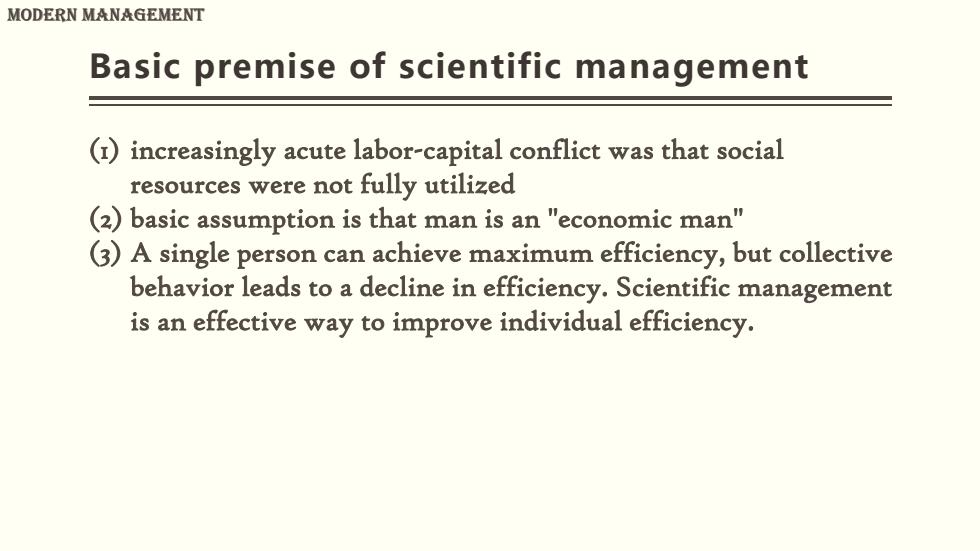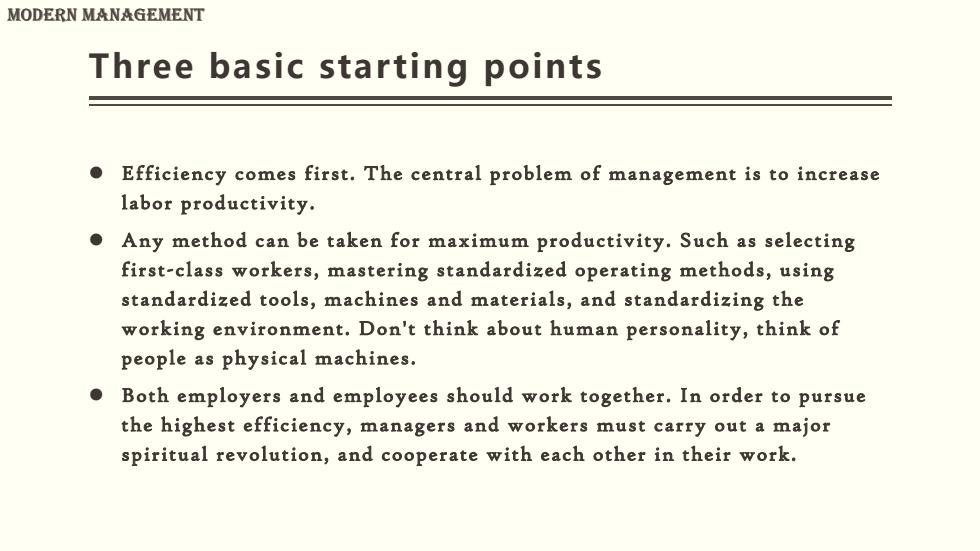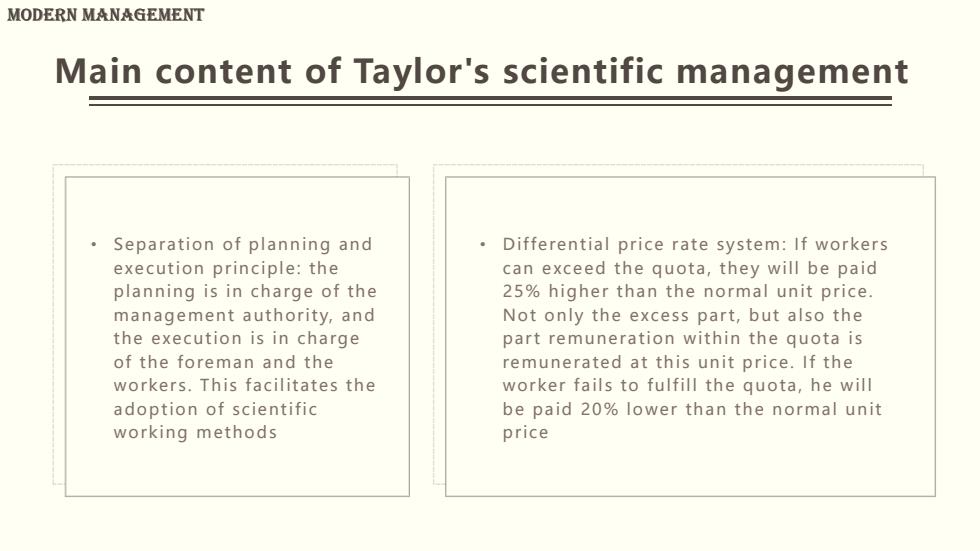
MODERN MANAGEMENT Basic premise of scientific management (1)increasingly acute labor-capital conflict was that social resources were not fully utilized (2)basic assumption is that man is an"economic man" (3)A single person can achieve maximum efficiency,but collective behavior leads to a decline in efficiency.Scientific management is an effective way to improve individual efficiency
Modern ManageMent Basic premise of scientific management (1) increasingly acute labor-capital conflict was that social resources were not fully utilized (2) basic assumption is that man is an "economic man" (3) A single person can achieve maximum efficiency, but collective behavior leads to a decline in efficiency. Scientific management is an effective way to improve individual efficiency

MODERN MANAGEMENT Basic principles Two basic principles on which Taylor's scientific management experiments are based: Principles of Homework Research Principles of time research
Modern ManageMent Two basic principles on which Taylor's scientific management experiments are based: u Principles of Homework Research u Principles of time research Basic principles

MODERN MANAGEMENT Three basic starting points Efficiency comes first.The central problem of management is to increase labor productivity. Any method can be taken for maximum productivity.Such as selecting first-class workers,mastering standardized operating methods,using standardized tools,machines and materials,and standardizing the working environment.Don't think about human personality,think of people as physical machines. Both employers and employees should work together.In order to pursue the highest efficiency,managers and workers must carry out a major spiritual revolution,and cooperate with each other in their work
Modern ManageMent l Efficiency comes first. The central problem of management is to increase labor productivity. l Any method can be taken for maximum productivity. Such as selecting first-class workers, mastering standardized operating methods, using standardized tools, machines and materials, and standardizing the working environment. Don't think about human personality, think of people as physical machines. l Both employers and employees should work together. In order to pursue the highest efficiency, managers and workers must carry out a major spiritual revolution, and cooperate with each other in their work. Three basic star ting points

MODERN MANAGEMENT Working Quota Principle (Taylor's Iron Shipping Test) Main content of The principle of adapting ability and work:changing the traditional method Taylor's scientific of selecting jobs for workers,insisting on selecting workers by job,and management selecting first-class workers for each position to ensure high work efficiency Standardization Principle:Shovel Test
Modern ManageMent Main content of Taylor's scientific management l Working Quota Principle (Taylor's Iron Shipping Test) l The principle of adapting ability and work : changing the traditional method of selecting jobs for worker s, insisting on selecting worker s by job, and selecting fir st-class worker s for each position to ensure high work efficiency l Standardization Principle: Shovel Test

MODERN MANAGEMENT Main content of Taylor's scientific management Separation of planning and Differential price rate system:If workers execution principle:the can exceed the quota,they will be paid planning is in charge of the 25%higher than the normal unit price. management authority,and Not only the excess part,but also the the execution is in charge part remuneration within the quota is of the foreman and the remunerated at this unit price.If the workers.This facilitates the worker fails to fulfill the quota,he will adoption of scientific be paid 20%lower than the normal unit working methods price
Modern ManageMent Main content of Taylor's scientific management • Separation of planning and execution principle: the planning is in charge of the management authority, and the execution is in charge of the foreman and the worker s. This facilitates the adoption of scientific working methods • Differential price rate system: If worker s can exceed the quota, they will be paid 25% higher than the normal unit price. Not only the excess part, but also the part remuneration within the quota is remunerated at this unit price. If the worker fails to fulfill the quota, he will be paid 20% lower than the normal unit price